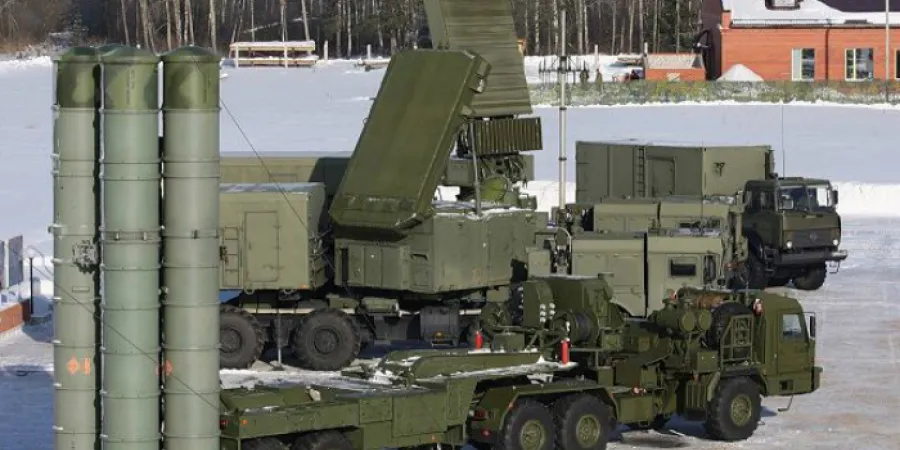Turkey Shows Interest in the Russian S-400 Air Defense System
After canceling a tender for the purchase of Chinese long-range missile defense system, Turkey is negotiating with many countries to acquire new air defense system
IsraelDefense
| 21/11/2016
Turkish Defense Minister Fikri Isik has said that Ankara is in talks with Moscow regarding the purchase of S-400 air defense systems. Army Recognition reports that after canceling last year a $3.4 billion tender for the purchase of Chinese long-range missile defense system, Turkey is negotiating with many countries to acquire new air defense system.
The Turkish Ministry of Defense in 2013 considered bids submitted in a tender for providing air defense systems and made a decision to continue specific discussions with a Chinese manufacturer of long-range air defense systems FD-2000, an export version of HQ-9. The Chinese were in competition with the American Raytheon/Lockheed Martin Patriot, Italian-French concern Eurosam with the SAMP/T and the Russia’s Antey-2500 proposed by Rosoboronexport (Russia's state agency arms exporter agency).
"Turkey’s doors are open to any country willing to cooperate with the country technically in producing air defense systems for the use of the Turkish Armed Forces, the head of the defense industry body has said, without ruling out the direct procurement of the systems until they can develop a national model," said Undersecretary of Turkish Defense Industries Ismail Demir.
Alexander Fomin, the head of the Russian Federal Service for Military-Technical Cooperation, said that Russia planned to discuss the issue of deliveries of air defense systems to Turkey as it is on the agenda of Russian-Turkish military cooperation.
The S-400 Triumph is intended to engage, ECM, radar-picket, director area, reconnaissance, strategic and tactical aircraft, tactical and theater ballistic missiles, medium-range ballistic missiles and other current and future air attack assets at a maximum range of 400 km, and an altitude of up to 30 km. It can simultaneously engage 36 targets.
After canceling a tender for the purchase of Chinese long-range missile defense system, Turkey is negotiating with many countries to acquire new air defense system
Turkish Defense Minister Fikri Isik has said that Ankara is in talks with Moscow regarding the purchase of S-400 air defense systems. Army Recognition reports that after canceling last year a $3.4 billion tender for the purchase of Chinese long-range missile defense system, Turkey is negotiating with many countries to acquire new air defense system.
The Turkish Ministry of Defense in 2013 considered bids submitted in a tender for providing air defense systems and made a decision to continue specific discussions with a Chinese manufacturer of long-range air defense systems FD-2000, an export version of HQ-9. The Chinese were in competition with the American Raytheon/Lockheed Martin Patriot, Italian-French concern Eurosam with the SAMP/T and the Russia’s Antey-2500 proposed by Rosoboronexport (Russia's state agency arms exporter agency).
"Turkey’s doors are open to any country willing to cooperate with the country technically in producing air defense systems for the use of the Turkish Armed Forces, the head of the defense industry body has said, without ruling out the direct procurement of the systems until they can develop a national model," said Undersecretary of Turkish Defense Industries Ismail Demir.
Alexander Fomin, the head of the Russian Federal Service for Military-Technical Cooperation, said that Russia planned to discuss the issue of deliveries of air defense systems to Turkey as it is on the agenda of Russian-Turkish military cooperation.
The S-400 Triumph is intended to engage, ECM, radar-picket, director area, reconnaissance, strategic and tactical aircraft, tactical and theater ballistic missiles, medium-range ballistic missiles and other current and future air attack assets at a maximum range of 400 km, and an altitude of up to 30 km. It can simultaneously engage 36 targets.



